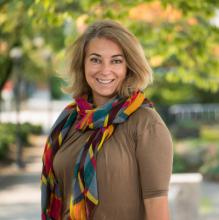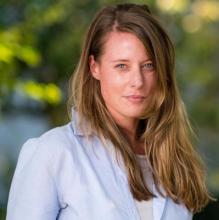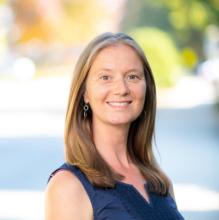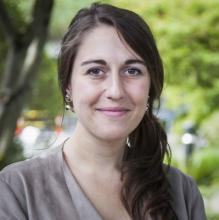Employing autoethnographic methodology, my work addresses issues of stigma and resilience in academia.
Research Description
My research relates to issues of stigma and resilience in academia. I employ autoethnographic methodology that entails researchers using their own experiences positioned within a socio-cultural milieu. It is research that is historical, cultural and political. Simply put, it is a person studying society through his/her own lens or telling a personal story in an evocative scholarly fashion. My graduate dissertation will include: a written autoethnography, videos, paintings and photographs. The art-based components of the dissertation will be in a gallery exhibition as well as available on-line. My research is expected to have a transformative affect on readers and viewers.
What does being a Public Scholar mean to you?
Being a public scholar helps me to be a role model showing that persons with mental health disabilities can and do succeed in higher education. It will help students, faculty, and staff to better understand their own situations. My research will help reduce stigma and shame felt by and exhibited towards persons with mental health disability. The dissemination of my research will reduce the dropout rate for persons with mental illness in university.
In what ways do you think the PhD experience can be re-imagined with the Public Scholars Initiative?
The PhD experience can be re-imagined through the use of public forums to disseminate research to the public. I find it exciting that research can become a living communication with the public and other scholars.
How do you envision connecting your PhD work with broader career possibilities?
As an artist keeping my work in the public sphere is essential. I hope that the Public Scholar Initiative will put me in touch with further curatorial and showing opportunities.
How does your research engage with the larger community and social partners?
Mental health affects people in all walks of life. In the past I have been a curator for an art auction to raise monies for a mental health service organization. I hope to work with mental health organizations and other colleges and universities to advance opportunities for persons with mental health disabilities to attend college or university.
Why did you decide to pursue a graduate degree?
I had been working as an independant filmmaker and artist and started a non-profit for art education for persons with mental health disabilities. Previously I had been involved in a mental health drop-in centre. I tried to encourage people to try to go back to college. I decided that I would be better able to do this if I did a PhD.
Why did you choose to come to British Columbia and study at UBC?
As a person with a mental health disability it was important for me to stay in Vancouver where I have an excellent relationship with my health care professionals. Also I had been out of school for some time and was easily able to meet with professors and take a couple classes in preparation. I felt that the Interdisciplinary program was the perfect fit.
Being a public scholar helps me to be a role model showing that persons with mental health disabilities can and do succeed in higher education.




